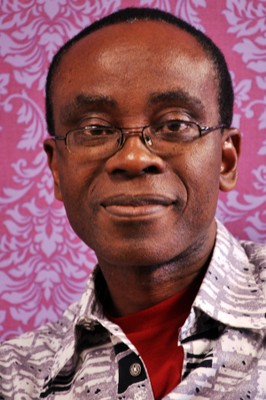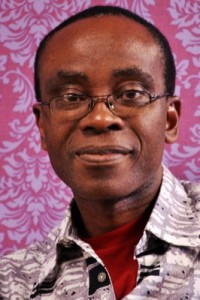


From Dianabasi Effiong,Calabar
Foremost Nigerian environmentalist, Mr Nnimmo Bassey, has called for the revocation of permits granted by the Federal Government to Monsantho, a multi-national company, to bring genetically- modified crops into Nigeria.
He made the call in an interview in Calabar on the side line of the 18th Bassey Andah Memorial Lecture.
The lecture which holds annually has as its theme “The Nigerian Environment: A Threatened Heritage”.
Bassey also appealed to the federal government to review the Nigerian Biosafety Management Act.
According to him the permit granted Monsantho to bring in genetically modified organisms (GMOs) as well as cotton and two kinds of corn (maize) into Nigeria will be highly detrimental.
He said: “The Nigeria Biosafety Management Act was signed into law early 2015 just before the end of the former government. The law governs biosafety in Nigeria.
“But the law is extremely permissive. Almost every kind of application can be approved through that law. Now a Genetically Modified Organism (GMO) company applied to bring in three kinds of GMOs into Nigeria. GMO cotton and two kinds of GMO corns.
“And the application were made in October 2015. They advertised, calling for objections and comments by February 2016, but on May 1, approval was given. They didn’t even consider public opinion.
“For example the objections sent by my organisation Home of Mother Earth Foundation (HOMEF) and Environmental Rights Action (ERA) were acknowledged. They wrote us a letter on the 28th of April acknowledging receipt that they would consider what we are saying, but May 1 which was a Sunday, approval was given.
“That shows they didn’t consider what Nigerians think. Then secondly, the biosafety agency has on its own board people who are openly promoting GMOs. So you sit on a board and are promoting a thing you are supposed to regulate and you apply for permit with commercial interest and approve it.
“We are saying that those permits should be nullified, because they are illegal permits and then the law itself should be dramatically reviewed to protect the interest of Nigerians and not just commercial interest.”
He said that GMOs were capable of impacting negatively on our environmental and also on the health of citizens.
“They also would destroy our local varieties especially corns, since corn has been approved now. So gradually we are going to see a destruction of local varieties. And the problem with that is that apart from the health implication, when you have fewer varieties, it means our biodiversity is no longer strong,” Bassey said.
He said that there might be food crisis in Nigeria following the decision to alow to allow Monsantho’s GMOs into the country.
“There may be food crisis in the country. The whole thing is not just about bringing in exotic species. The idea is commercial interest of GMO companies. The truth is that GMOs do not produce more than natural crops. Scientists and experts have verified this.
“When they tell us that our population is going up and we need to feed people and that can only be achieved through GMOs, it is not true. That is just an argument promoted by the industry that is not verified in real life,” he said.
Earlier, Bassey who delivered a lecture entitled “Nigeria and The Prodigal Environmental Stewards”, said that life expectancy in the Niger delta was now 41 years because of environmental pollution.
The chairman of the Occasion, Prof. Oladele Osibanjo, called for a stronger regulatory framework in Nigeria’s environmental management
Osibanjo, a Professor of Analytical and Environmental Chemistry at the University of Ibadan, also called for the introduction of environmental studies in Nigeria’s school curricula.
He said that Nigeria currently produces about 1.2 metric tonnes of electronic wastes per year through expired cell phones dumped in the country.
“One of the greatest challenges in Nigeria today is electronic waste. These devices when they are no longer useful become a problem. We are daily exposed to toxic waste. Computers are akin to urban mining in Nigeria; visit the Alaba market. It behoves on us to take environmental studies very seriously.
“We require knowledgeable people, a comprehensive approach in our environmental management sector. Inter-generational equity demands that we should manage our resources well,” he said.






